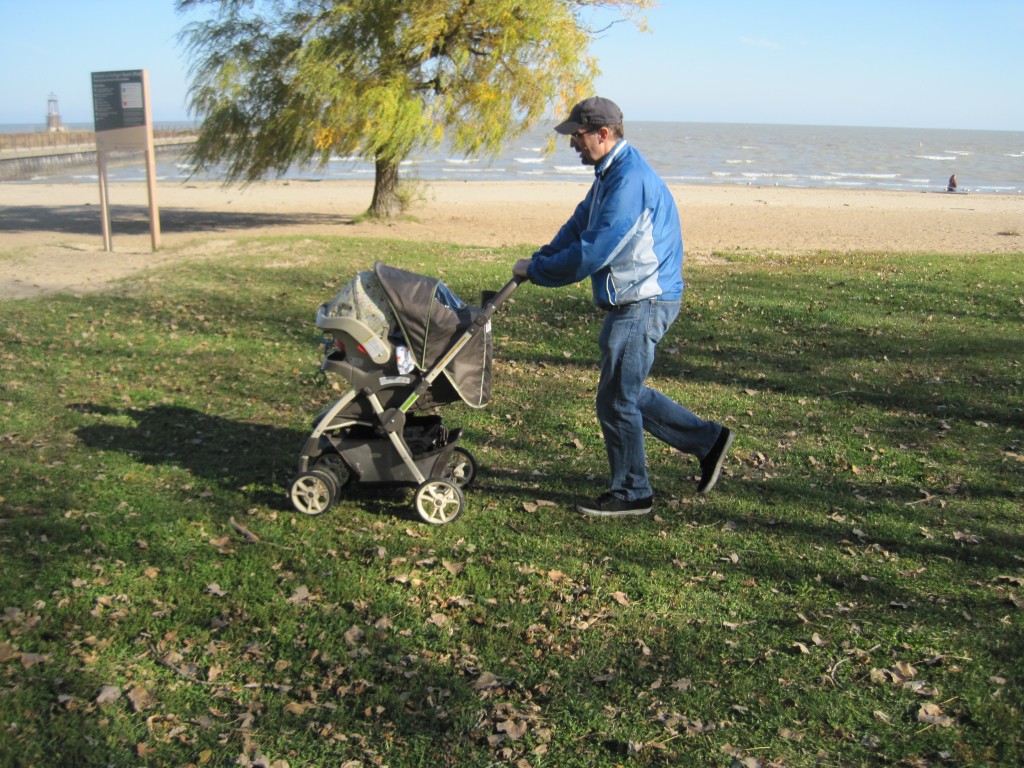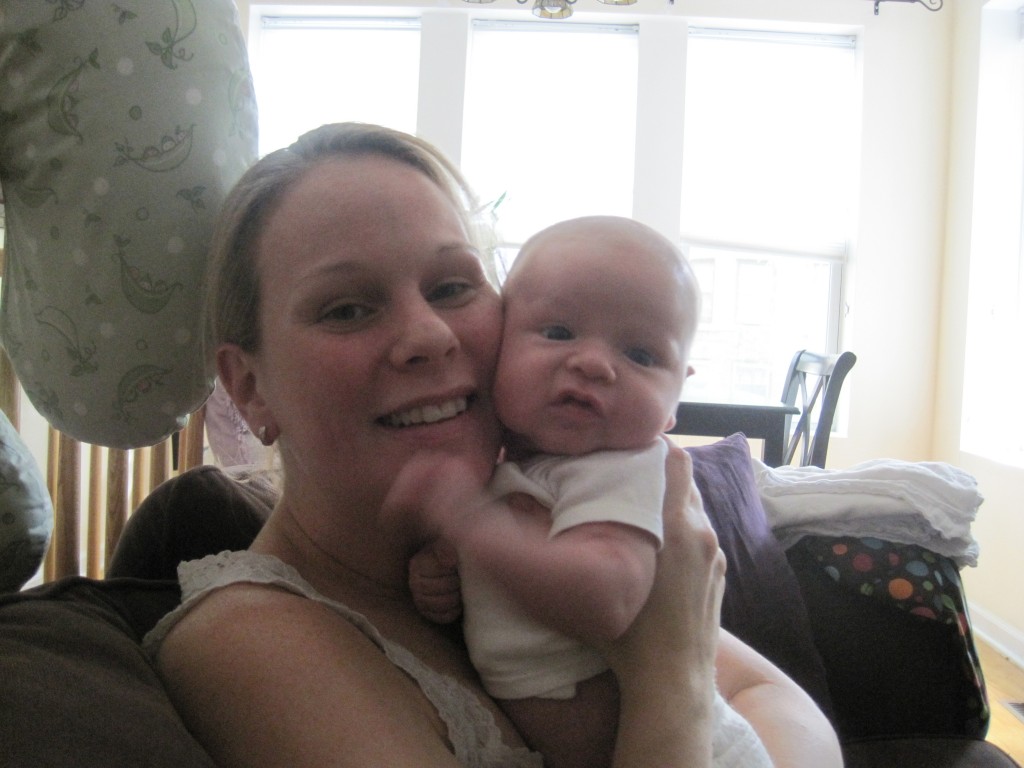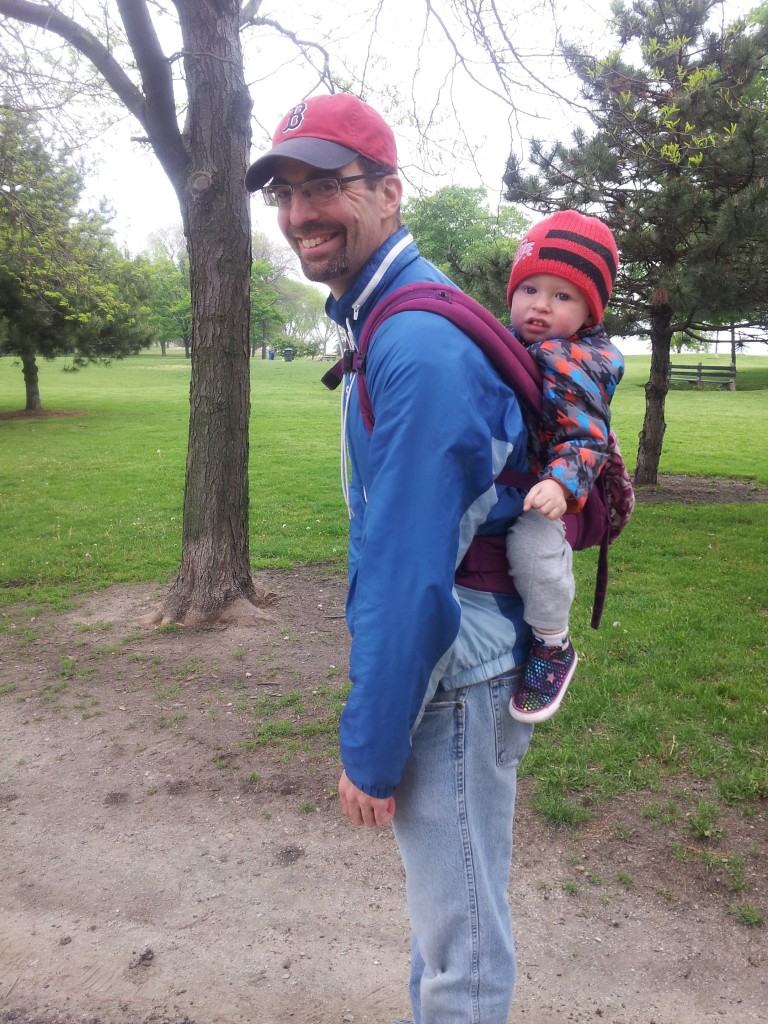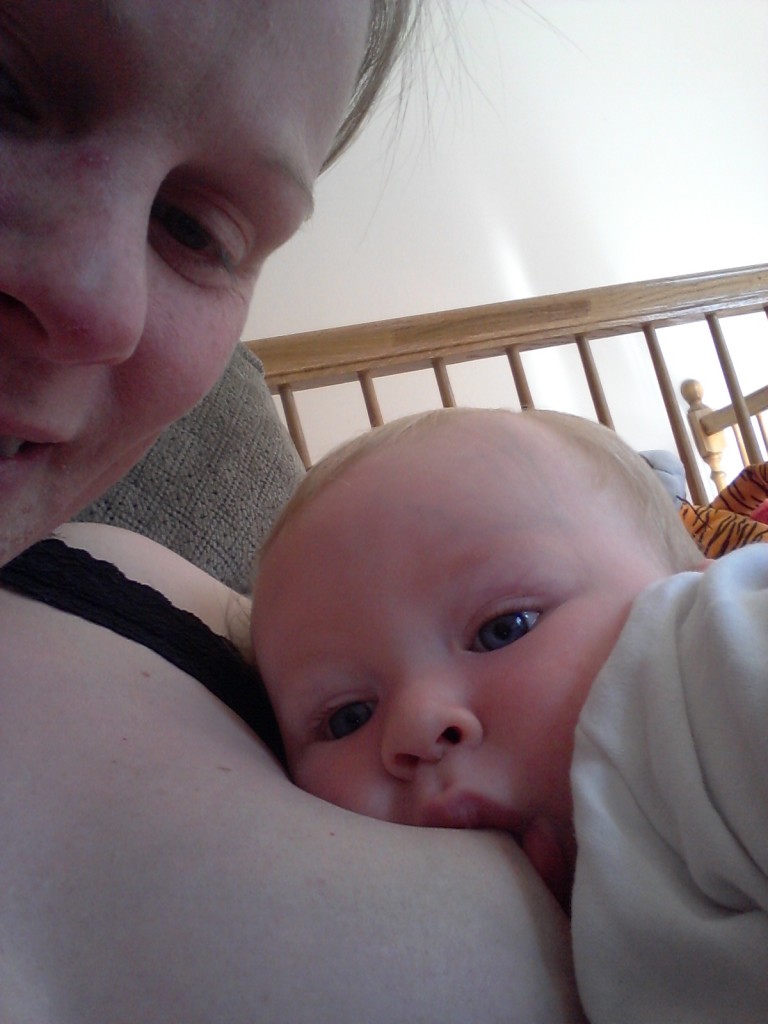My son, Jack, was about a month old when my husband and I walked to a nearby restaurant to have lunch on the outdoor patio. We walked Jack in the stroller that we had chosen for our baby registry. I had seen so many families eat lunch while their babies slept in the stroller next to the table. We could do this too. We could be those people! We sat down and Jack slept for about 10 minutes and then woke up. Well, that wasn’t part of the plan, but OK, I picked him up and nursed him while we ate.
We finished our lunch and headed toward home pushing Jack in the stroller. He started to cry. What the hell, man? This didn’t seem to be the way things went for other parents. On TV and in movies the babies sleep all the time or just sit there in a stroller cooing while the parents go about their business. The other babies in strollers sitting in the restaurant or rolling down the sidewalks are always sleeping or just being quiet. Jack cried harder. I got nervous. What’s wrong with him? I pushed the stroller faster. I was thinking, We need to get home. He cried harder—I pushed faster. My husband said, “Shouldn’t we pick him up?”
I will never forget that moment. I am a completely different parent now almost 2 years later. I look back at the mother I used to be and I feel disappointed that I was so disconnected from Jack. We needed to get home? What was I thinking? A one-month-old baby doesn’t know one house from any other place on Earth. I picked Jack up as my husband suggested and he stopped crying. Because he was home. I am his home.
Picking Jack up out of the stroller turned out to be the accidental first step on a journey. From that point on, I sought out a deeper connection to the natural world and to Jack. I sought out that inner voice that speaks to me from my heart and my instincts. All the baby books and the advice became obsolete in light of this voice. I pushed the stroller into the closet and there it sits to this day. I wrapped Jack to my chest because this is his home. I began, through deep self-reflection and research, a process of peeling away the layers of society’s messages and influences that had built up over 35 years of life. I no longer think of breastfeeding in terms of an end date. The bassinet is in storage and we now share the bed as a family. In fact, our storage unit is filled from wall to wall, floor to ceiling with all things designed to keep distance between Jack and me. The crib, the swing, the jumperoo.
This journey didn’t suddenly make parenting into a joyride. I have no idea why other babies seem to be quiet and Jack seems to never be quiet. But I suspect now that this is how mothers see it. Their baby is the hardest, the loudest, the neediest. And all other babies are quiet and all other mothers have it easy. But I now understand that the common conception about Attachment Parenting—that it sounds like it makes parenting harder—is opposite to my own experiences. I find detached parenting hard. Parenting from instinct takes all the pressure off. I follow Jack’s lead. I focus on his needs and I meet them as they arise. I don’t have to choose a breastfeeding end date. Jack will choose. I don’t have to struggle with a bulky stroller on buses. He sits in a carrier at my chest and when he wants to nurse I loosen the straps and latch him on. I don’t have to worry about cribs and toddler beds and how long is too long to share a bed. Jack will tell me when he wants his own bed. And talk about floor space!
In those early days it was so hard to figure out what to do. My husband and I had long conversations about what we wanted for Jack. What kind of parents we wanted to be. It seemed like things were going so smoothly for others. At doctor appointments the staff seemed confused about how to advise us because we co-slept. They were baffled by our reluctance to start jamming rice cereal down his throat. They seemed angry when we asked questions about vaccinations. It became clear that we were doing things differently than most people. We are both so grateful now for finding Attachment Parenting. My husband said to me once that his co-workers were trying to give him advice and he didn’t know how to explain what we were doing and how their advice didn’t apply. I was early in my research, but I had come across the term Attachment Parenting. I said “just tell them we do Attachment Parenting.” I wasn’t quite sure what I was saying then. But it will always represent a turning point for us. A time when we were beginning to gain confidence in our choices even though they were not popular. We don’t follow any rules. We don’t even necessarily have a name for what we’re doing—attachment parenting, gentle parenting, instinctual parenting? We just do what feels best for Jack. Our goal every day is to meet his needs gently.
Abby Theuring, MSW
















